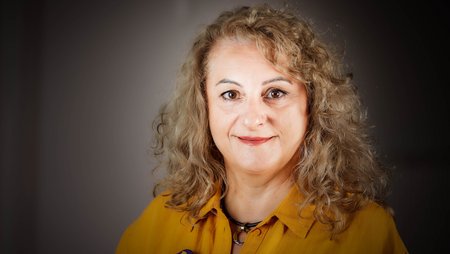Kosovo: Wars and conflicts increase stress for partner organisations

Experienced psychologists work at our partner organisation Medica Gjakova in western Kosovo, providing counselling and support to women who have experienced sexualised violence. During Kosovo’s long history of conflict, all of these people have experienced many things that still weigh on their bodies and souls. Traumas do not heal easily. Current conflicts are now putting an additional strain on them.
“Even when the conflicts happen outside of Kosovo, there is so much unresolved trauma that people react immediately – they get triggered.”
War in Ukraine: stress for colleagues

An example: When Russia scaled up its attack on Ukraine in February 2022, this was like a red flag for the people of Kosovo. People started preparing for the worst, reports Mirlinda Sada. They were spending all the money they had to buy food reserves, in order to be prepared.
“Working with trauma is always ‘one step forward, one step back’, every time a new war breaks out.”
In this light, the last days in September were frightening and retraumatising. An exchange of fire occurred in the Serb-majority village of Banjska, located in northern Kosovo. Masked men blocked two roads with trucks. When Kosovan police officers arrived on the scene, the men opened fire. One police officer was fatally shot. The attackers then retreated into a Serbian Orthodox monastery, from where they continued to engage in gunfights with Kosovan forces. More people were injured and killed. When Mirlinda Sada talks about this, she describes an attack that has unsettled not only survivors of sexualised violence or the general public, but also the staff of Medica Gjakova.
“Psychosocial counsellors need to assist survivors of sexualised violence more frequently and intensively than they normally would. And this in a situation where they are not doing too well themselves. Many colleagues did not want to travel away from home to attend meetings because they didn’t want to be separated from their families.”
Some of her colleagues have become convinced a new war is approaching – while they are still figuring out how to heal themselves from the previous one. In these situations, self-care and caring for the whole team become very important steps enabling them to continue to be present for survivors of sexualised violence. At Medica Gjakova, colleagues have received therapy themselves. In this way, they have ensured they can provide professional support to survivors, in spite of the personally stressful situation. After all: Offers of professional assistance for survivors cannot be maintained unless the specialist staff are empowered, too.


